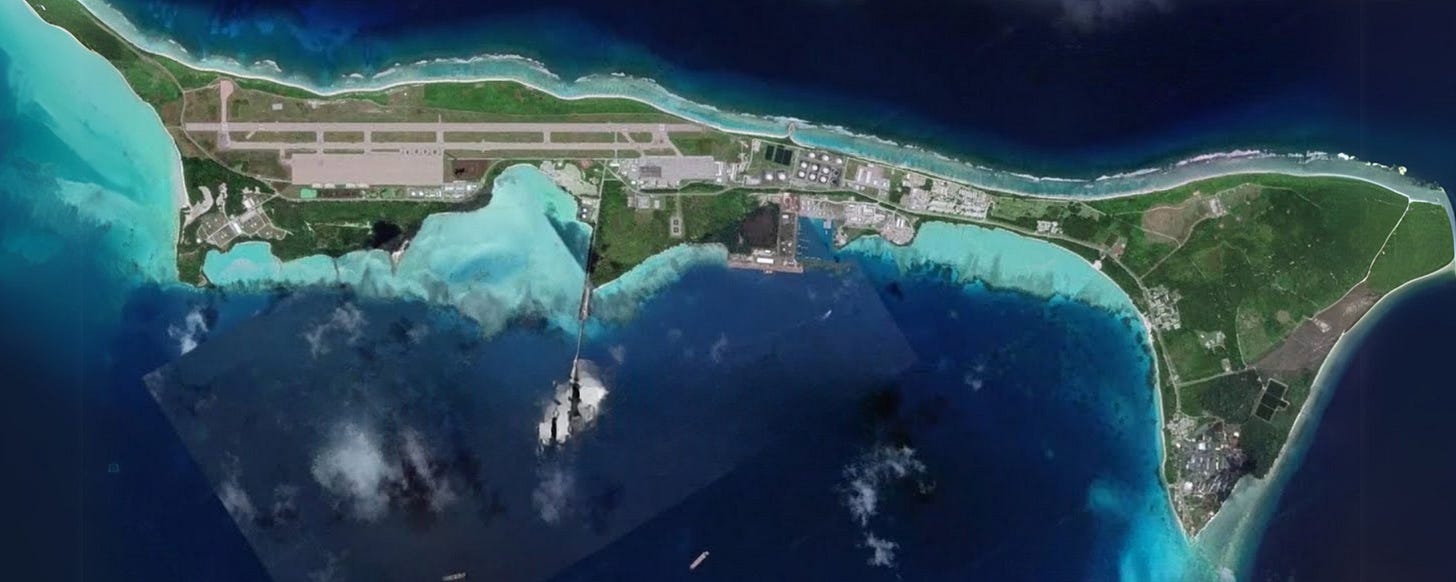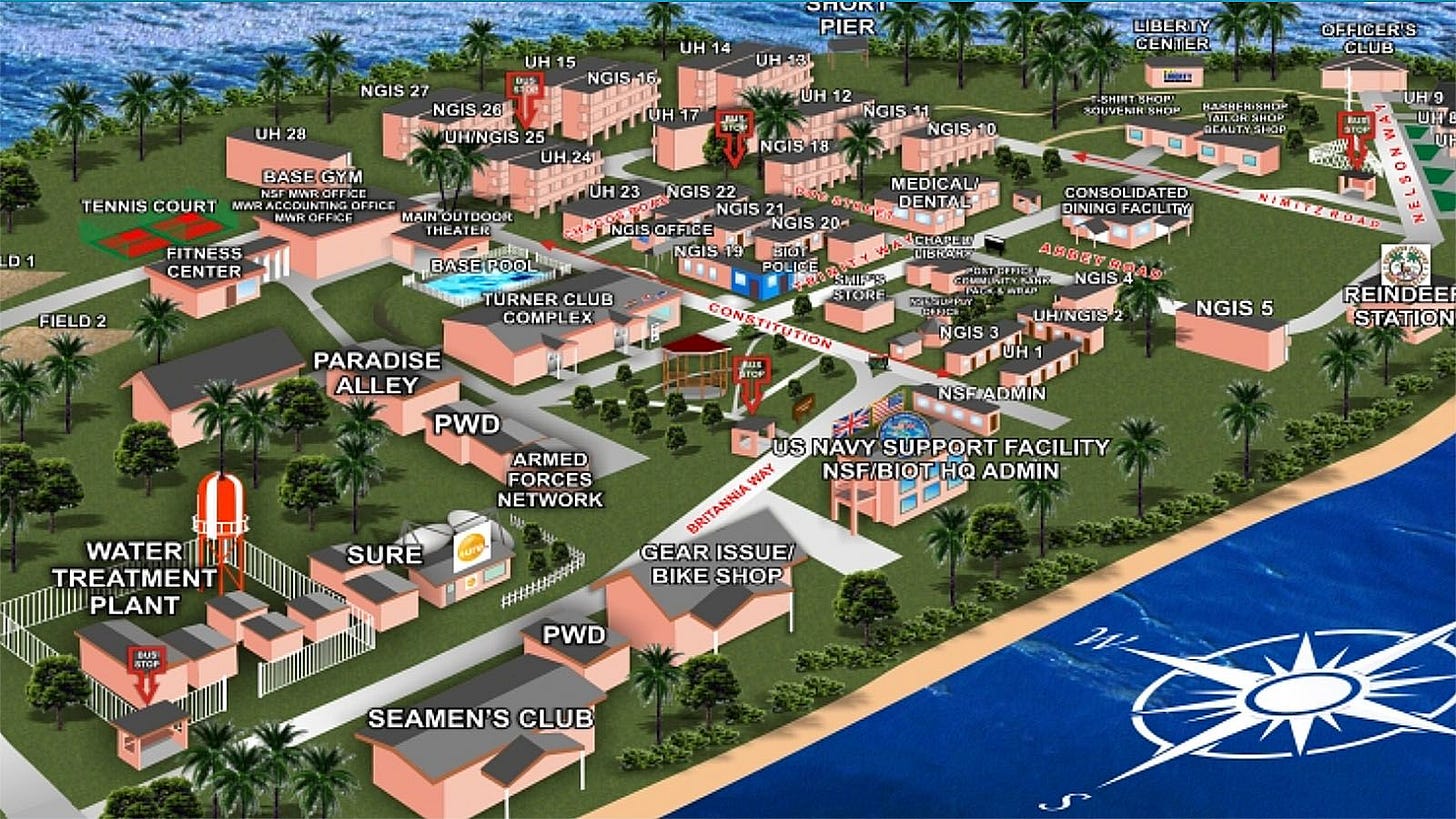The Chagos Betrayal: How Guilt Politics Endanger US National Security
The decision to hand over the Chagos Archipelago to Mauritius is not merely misguided; it is suicidal empathy masquerading as justice. In a geopolitical climate defined by sharpening great-power competition and growing assertiveness from China and Russia, Britain’s move to divest sovereignty from one of its most strategically vital outposts is an act of supreme self-harm. Worse, it is an act that threatens not just British interests but also those of the United States and the broader liberal democratic order.
It is no coincidence that within days of Prime Minister Keir Starmer signaling a final sovereignty deal with Mauritius, Russian diplomats appeared in Port Louis to ink maritime cooperation agreements. Nor is it an accident that China’s growing presence in the Indian Ocean has focused its gaze squarely on Mauritius, already a surveillance client state and economic vassal of Beijing. To pretend these moves are disconnected from the impending handover of Chagos is to ignore the obvious: hostile powers are circling.
The Mauritian claim to Chagos is, at best, opportunistic. Legally, the UK purchased the islands in 1965 for £3 million, a lawful transaction undertaken with the consent of Mauritian ministers, recorded in international treaties, and left uncontested for decades. Britain’s control is further buttressed by effective occupation, military investment, and strategic stewardship, particularly in partnership with the United States. By contrast, the 2019 ICJ opinion favoring Mauritius is just that, an opinion, advisory in nature and devoid of binding authority.
If historical bonds matter, then Chagos and Mauritius were never joined by more than bureaucratic fiat. The archipelago was ruled from Port Louis out of imperial convenience, not cultural or political unity. Chagossians themselves, descended from slaves and indentured workers, forged an identity distinct from the Mauritian polity long before strategic imperatives rendered Diego Garcia indispensable. Many Chagossians now resist Mauritian control, rightly sensing that their plight is being weaponized in a geopolitical play they do not control.
But the question is not only one of history or legality. The central issue is strategic reality. Diego Garcia is the Gibraltar of the Indian Ocean, a forward-operating base critical for US force projection across the Middle East, Africa, and Asia. The base hosts over 3,000 US military personnel and contractors and includes some of the most advanced assets in the Pentagon's arsenal, including B-52 bombers, prepositioned naval logistics ships, and extensive satellite tracking and surveillance infrastructure. It has supported operations from Desert Storm to the war in Afghanistan. As global tensions rise, its value only increases.
American political and military leaders have not been subtle in their opposition to the sovereignty transfer. Senator John Kennedy called it “bone-deep, down-to-the-marrow stupid,” warning that Mauritius’ coziness with China means that Beijing, not Port Louis, will be the real beneficiary. Former Congressman Mike Waltz and Secretary of State Marco Rubio echoed these concerns, framing the deal as a reckless opening for Chinese surveillance, intelligence gathering, and influence projection. These aren’t fringe voices; they represent the consensus view among national security hawks in Washington. While Trump initially expressed concerns, following the terms of the Trump Doctrine he gave Keir Starmer his support and Rubio in his role as Secretary of State expressed support as well.
The strategic risks are legion. With Mauritius in charge, even under a 99-year lease to the UK and US, the long-term integrity of Diego Garcia becomes contingent on the policies of a small, debt-ridden island already deep in China’s pocket. Mauritius is a participant in China’s Belt and Road Initiative. Its telecommunications infrastructure is built by Huawei. Its government approved a China-financed Safe City Project, installing 4,000 facial recognition surveillance cameras across the island, run through Huawei's servers and accessible by Chinese technicians. Beijing knows where every Mauritian citizen, politician, and visitor is, at all times. This is not speculation, it is the architecture of control.
Chinese influence does not end with digital surveillance. Mauritius’ crippling debt-to-GDP ratio has already forced it to accept debt forgiveness and further entrenchment by Beijing. Every technology contract, every maritime agreement, every handshake with the Chinese Ministry of State Security becomes a vector for future coercion. Add to this Russia’s recent moves, a "marine research" agreement that sounds suspiciously like the prelude to port access, and it becomes clear that the Indian Ocean is becoming a geopolitical chessboard. Britain is handing its queen to the other side.
What of the lease? What of legal assurances? These, too, are brittle defenses. China secured a 99-year lease on Sri Lanka’s Hambantota port after engineering a debt crisis. There is no reason to believe they would not use similar tactics to force Mauritius to revisit the Diego Garcia arrangement. At best, the US will find itself paying rent to a Chinese proxy for the privilege of operating a base it built and secured. At worst, base operations will be constrained, surveilled, or quietly sabotaged.
And here we must confront a harsh truth. Strategic installations must be governed by states with the will and capacity to say "no." Britain and the United States have demonstrated that will. They have used Diego Garcia to defend international order, deter aggression, and keep critical sea lanes open. Mauritius, by contrast, walks a diplomatic tightrope, seeking to placate Delhi, court Beijing, and now, it seems, flirt with Moscow. A government that trims its sails to every geopolitical wind cannot be trusted with the stewardship of the West's most valuable maritime asset.
Environmentalists, too, should take heed. Under British rule, the Chagos Archipelago has remained one of the most pristine marine environments on Earth. The Royal Navy enforces strict environmental protections. Mauritius, on the other hand, has presided over a series of ecological disasters, including the 2020 Wakashio oil spill. Its record on sustainable development is poor, and its future stewardship of Chagos’ ecosystems is, to put it mildly, doubtful.
There is still time to halt this catastrophe. Parliament is not a rubber stamp. Under the Constitutional Reform and Governance Act, MPs can block ratification of the treaty by passing a single negative resolution. They can delay it indefinitely by forcing new 21-day scrutiny periods. The treaty also requires primary legislation, with ample opportunities for amendments, filibusters, and funding blockades. The tools exist. The only question is whether there is political will.
Encouragingly, that will is forming. Kemi Badenoch, James Cartlidge, Priti Patel, and Mark Francois have condemned the handover. Nigel Farage and Reform UK have pledged their support. A coalition of Conservatives, Reform, DUP members, and even skeptical Labour backbenchers now threatens the government’s fragile majority. If just 50 Labour MPs refuse to toe the line, the deal collapses.
Critics will cry colonialism. But maintaining strategic sovereignty over Chagos is not about imperial nostalgia. It is about realism. It is about defending a rules-based order against revisionist regimes who would prefer to write the rules themselves. It is about protecting freedom of navigation, regional stability, and Western deterrence in an age when such virtues are again under siege.
Decolonization is not a suicide pact. It need not mean handing the keys of a vital base to a government under foreign influence. Britain must retain sovereignty. The US must insist on it. The cost of empathy without foresight is not measured in diplomatic praise but in strategic vulnerability.
History will not judge kindly a generation of leaders who, eager to wash their hands of colonial guilt, forfeited the very bastions that kept the peace. Diego Garcia is not a relic. It is a lifeline. Let us not cut it for the sake of a hollow gesture.
If you enjoy my work, please consider subscribing https://x.com/amuse.




